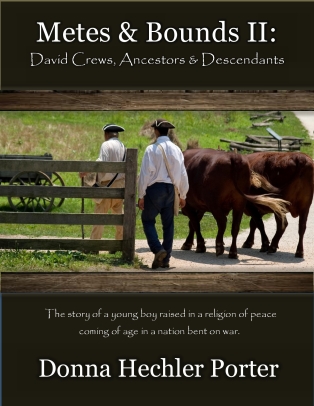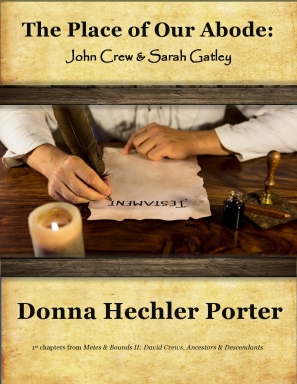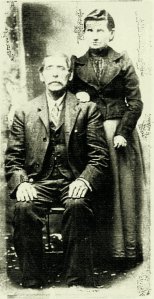I originally published this article last May. I had very few followers at that point. Since it pertains somewhat to Thanksgiving and some misplaced traditions about religious freedom and the roots of our country's history, I thought it would be appropriate to repost it here. This is crossposted from my author blog as it contains information of an historical nature.
Contrary to popular historical thought, colonial America was not built upon freedom of religion. Not counting the lost colony of Roanoke, the first settlement in the New World was at Jamestown, Virginia, in 1607. Although this colony went through several periods of near abandonment, the colony survived enough to consider that year as its date of establishment. This colony was NOT founded on any sort of religious pretext whatsoever, but was founded purely on England’s desire to expand its border beyond Europe and to beat its rivals, Spain and France, in founding new territories. The Virginia settlers were Englishmen and were supporters of the Anglican Church. That religion, naturally, became the state religion of the colony. In 1753, the year my novel, Keeping Secrets, opens, colonists were expected to support the church and the priests with their tithes and money, as well as attend Anglican services. Fines were levied against those who chose not to do either.
The Pilgrims are oftentimes not only hailed as being the first colonists to settle the New World, but they are praised for their courage in leaving England to establish a country for religious freedom. Neither is the case. The Pilgrims did not land at Plymouth, Massachusetts until 1620, nearly 13 years after the settlement at Jamestown. It was, therefore, the second English settlement in the colonies, and ironically, while they left England for freedom of religion, they turned around and held a monopoly on religion much like what they left England to escape. Anyone who has read of the Salem witch trials, or Roger Williams and Anne Hutchinson, knows the kind of pressure Puritans could bring to bear on those who chose to follow a path different from their own. While they believed in freedom of religion for themselves, they did not believe in it for other people.
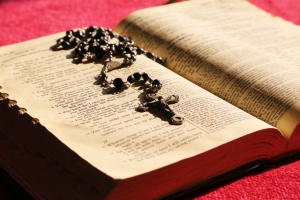 Unlike Virginia and the Plymouth Colony, the colony of Maryland, granted a charter in 1632, was founded by Catholics on the idea of religious freedom. Originally a haven for Catholics, by the early part of the 18th century, it had been supplanted by Protestant factions, and the Catholic Church was driven underground. Mass was not allowed in public, and Catholics never regained their primary standing in any colony.
Unlike Virginia and the Plymouth Colony, the colony of Maryland, granted a charter in 1632, was founded by Catholics on the idea of religious freedom. Originally a haven for Catholics, by the early part of the 18th century, it had been supplanted by Protestant factions, and the Catholic Church was driven underground. Mass was not allowed in public, and Catholics never regained their primary standing in any colony.
In 1681, William Penn founded Penn’s Colony, or Penn’s Wood, also on the idea of religious freedom. Penn, himself, was a Friend (Quaker), however, the Friends were eventually disenfranchised there as well despite their large numbers. Part of the problem with Pennsylvania Friends was their western border which endured a constant state of Indian wars from the mid-18th century to well after the Revolution. “Quaker pacifism,” in the face of such brutal hostilities, just didn’t make sense to the vast majority of colonials.
The Baptists and Methodists arrived in the colonies at around the same time as the Friends. While there were other smaller groups, for example, the Mennonites and the Moravians, they were smaller and of lesser consequence than the main religious sects. In the south, especially in Virginia, the Church of England was the established religion, so fines were levied against those who refused to participate, including Catholics, Baptists, Methodists, and the Society of Friends.
It was within this hodgepodge of eme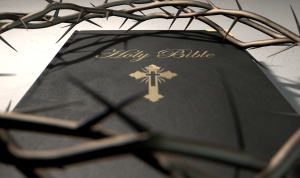 rging religious availability that Keeping Secrets opens (and our early Quaker ancestors, Crews, Ladd, and Magee lived). While Mary McKechnie is a devout Friend, embracing her religion and all it entails, Amon Cayle is not. The Friends literally controlled every aspect of their members’ lives, and while devout Friends welcomed the structure, many chafed against the restraint.
rging religious availability that Keeping Secrets opens (and our early Quaker ancestors, Crews, Ladd, and Magee lived). While Mary McKechnie is a devout Friend, embracing her religion and all it entails, Amon Cayle is not. The Friends literally controlled every aspect of their members’ lives, and while devout Friends welcomed the structure, many chafed against the restraint.
 rging religious availability that Keeping Secrets opens (and our early Quaker ancestors, Crews, Ladd, and Magee lived). While Mary McKechnie is a devout Friend, embracing her religion and all it entails, Amon Cayle is not. The Friends literally controlled every aspect of their members’ lives, and while devout Friends welcomed the structure, many chafed against the restraint.
rging religious availability that Keeping Secrets opens (and our early Quaker ancestors, Crews, Ladd, and Magee lived). While Mary McKechnie is a devout Friend, embracing her religion and all it entails, Amon Cayle is not. The Friends literally controlled every aspect of their members’ lives, and while devout Friends welcomed the structure, many chafed against the restraint.
For Amon Cayle, the problem is deeper. He doesn’t believe the Friends, as a religious group, have the authority to tell him how to live. Thus, he constantly walks a fine line between raising his kids to follow God, staying in good standing within the Friends so as to honor the promise he made to his late wife, and his quest for inner peace. Amon Cayle’s turmoil mirrors so many of the Friends at that time.
Amon laced his fingers together and rested his elbows atop his knees. The heat from the open window warmed his back. “What happened with Jackson?”
The boy looked away, but not before Amon caught a glimpse of shame.
“The note from Andrew says thee picked a fight with him.”
Still nothing. Amon felt his temper rising. “David, if thou will not speak to me, I will have to punish you with the information I have. After last year, I will not tolerate any fighting.”
“He said his Pa was trying to keep me out of the test so he had a better chance of winning and . . .”
“And what?”
“And that as long as you were a disorderly walker, he just might win.”
“So you started a fight?”
“No. He started it.”
“Who threw the first punch?”
“I did, but he shoved me into a tree.” David shifted his right shoulder forward. “Tore the last good shirt I have.”
Amon reached up and pulled the three inch ragged tear apart to reveal a middling patch of inflamed raw skin. That goodness it wasn’t the other shoulder. “Tell Rosie to put something on that later.”
“‘Tis not even my shirt. Aunt Agathy found an old one at her house and gave it to me.”
“What’s wrong with yours?”
“They are all too small. I gave them to John. With this torn, I don’t know what I will wear to school tomorrow.”
Amon ran his hand along his jaw. He wasn’t going to punish the boy for defending himself, and he didn’t doubt David was telling the truth. His nephew had been caught in too many lies over the years, lies his brother always believed.
“What am I going to do Pa? I’ve worked my whole life to take that test.”
“I am seeking restitution at the Friend’s next monthly meeting. After that, I will again be a member in good standing.”
David’s chin jerked upwards. “I don’t want thee lowering yourself to apologize to those people for me.”
Amon thought his head would burst. “Do you want to take the test?”
David nodded.
“Then ‘tis a good thing I go to meeting.”
“But ‘tis not fair. Elizabeth was the one who took off and married a Baptist behind your back. So why apologize?”
The pressure around Amon’s heart was almost too much to bear. “Because I made a promise to your mother before you children were born that I would try to remain faithful to the Friends, and as long as I remain censured for Elizabeth’s marriage, it puts the rest of you outside their world.”
From the moment Keeping Secrets opens, Amon Cayle’s doubt as to the authority of the Friends collides with his family and his promise to his late wife. Eventually, he is forced to make decisions.
But will those decisions be in the best interest of his children?
And what will they have to do with Mary McKechnie?

